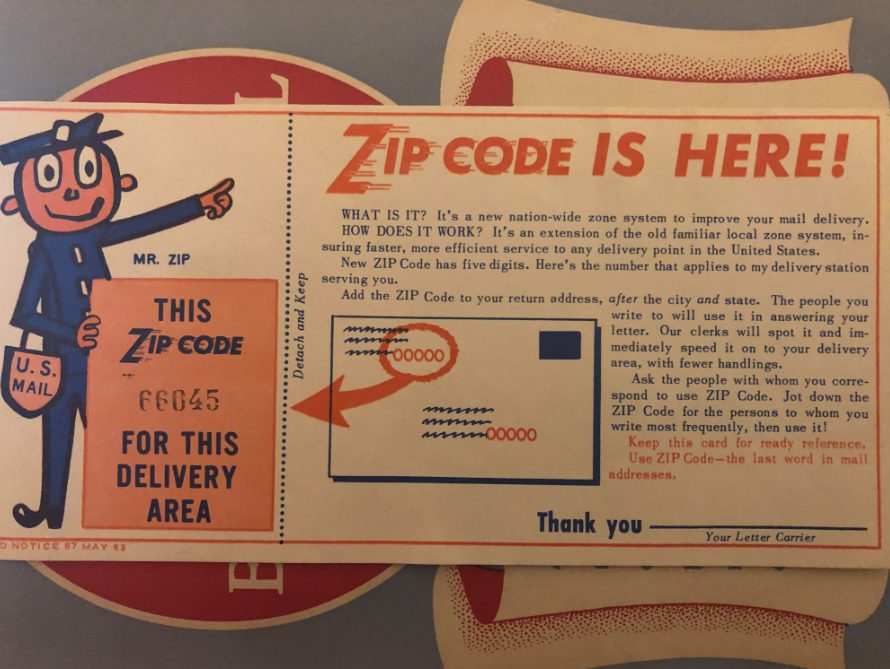Contents
Introduction: The Unsung Heroes of Mail Delivery
Few things are as ubiquitous in modern American life as the ZIP code. These five-digit numerical codes are so ingrained in our addresses that we rarely pause to consider their origins or significance. Yet, ZIP codes have revolutionized mail delivery, making it faster, more efficient, and more reliable.
When Were ZIP Codes Invented? A Journey Back to 1963
The birth of the ZIP code can be traced back to July 1, 1963. When were ZIP codes invented is a common question, and the answer is surprisingly recent given their widespread use today. The United States Postal Service (USPS) introduced the Zone Improvement Plan (ZIP) code as part of a larger initiative to modernize and streamline mail operations.
The Brains Behind the ZIP Code: Robert Moon’s Vision
While the official implementation of ZIP codes occurred in 1963, the concept had been brewing for years prior. Robert Moon, a postal inspector, is credited with the initial idea. In 1944, Moon proposed a system of postal zones to improve the efficiency of mail sorting and delivery. His forward-thinking proposal laid the groundwork for the development of the ZIP code system we use today.
Why “ZIP”? The Meaning Behind the Acronym
The acronym “ZIP” stands for Zone Improvement Plan. The name was chosen to highlight the system’s primary goal: to improve the organization and delivery of mail by dividing the country into geographical zones.
The Anatomy of a ZIP Code: What the Numbers Mean
Each ZIP code consists of five digits. The first digit represents a broad geographical area of the United States, while the following two digits narrow down the region to a specific sectional center facility (SCF). The final two digits identify a specific post office or delivery area.
ZIP+4: Taking Precision to the Next Level
In 1983, the USPS introduced ZIP+4, an expanded version of the ZIP code that added four additional digits. These extra digits provide an even more precise location within a delivery area, such as a specific building, group of apartments, or even an individual floor within a large building.
The Impact of ZIP Codes: A Revolution in Mail Delivery
The introduction of ZIP codes had a profound impact on the way mail is processed and delivered. Prior to ZIP codes, mail sorting was a largely manual and time-consuming process. With ZIP codes, the USPS was able to implement automated sorting systems, significantly increasing the speed and efficiency of mail delivery.
ZIP codes also played a crucial role in the development of other technologies, such as barcode scanners and optical character recognition (OCR) systems. These technologies, combined with ZIP codes, further automated and streamlined mail processing.
Read More: The Story Behind the ZIP: When Did Zip Codes Start and Why?
ZIP Codes in the Digital Age: More Than Just Mail
While ZIP codes were initially created for mail delivery, their use has expanded far beyond that purpose. ZIP codes are now used for a variety of applications, including:
- Demographic Analysis: ZIP codes provide valuable insights into the demographics of specific areas, such as income levels, education levels, and consumer preferences.
- Marketing and Advertising: Businesses use ZIP code data to target their marketing and advertising efforts to specific audiences.
- Logistics and Transportation: ZIP codes are essential for planning and optimizing delivery routes for packages and other goods.
- Emergency Services: ZIP codes help emergency responders quickly locate and dispatch assistance to the correct address.
The Future of ZIP Codes: Evolving with Technology
As technology continues to advance, the role of ZIP codes may evolve. Some experts predict that ZIP codes could eventually be replaced by more precise location-based systems, such as GPS coordinates. However, even with these advancements, ZIP codes are likely to remain a relevant and important tool for the foreseeable future.
Conclusion: The Enduring Legacy of the ZIP Code
The next time you address an envelope or enter your ZIP code on a website, take a moment to appreciate the humble yet powerful invention that is the ZIP code. When were ZIP codes invented might not be a question you ponder often, but their impact on our daily lives is undeniable. From revolutionizing mail delivery to enabling targeted marketing and facilitating emergency services, ZIP codes have become an integral part of modern society.






